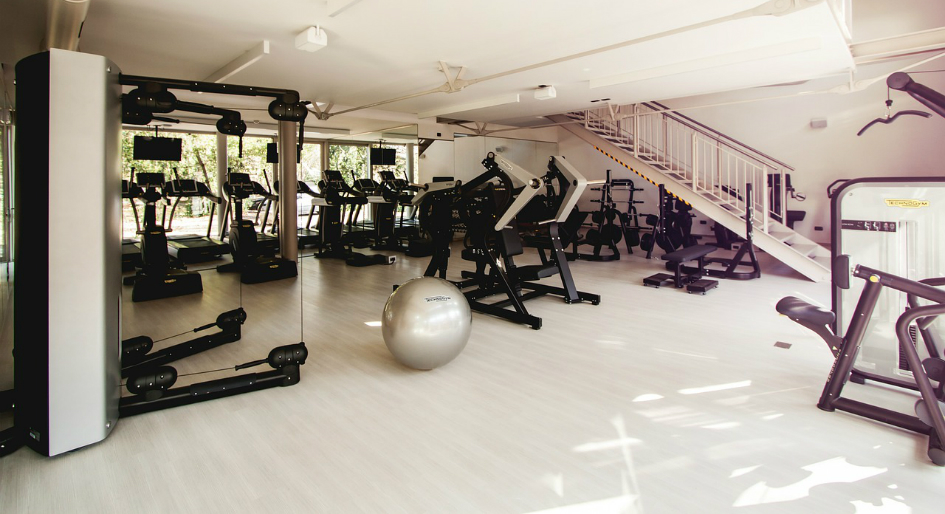When it comes to condominium amenities, one of the first things residents expect is a gym. Not just any gym, but a well-equipped, spacious, well-maintained gym. According to a RentShare study, the biggest pet peeve of the modern resident is not having access to quality services.
Nearly 15 years ago, developers didn’t deem it necessary to lay out a gym in a condo’s building plan. Gyms were a second-thought in a building. If there was space left over or room to fill on a floor, the space would be converted into a gym.
However, there is great value in providing a gym facility for residents so they don’t have to spend additional money and leave the property to go to another gym. And now more than ever, health-conscious individuals are constantly looking to improve their well-being by eating well and exercising.
As the demand for a gym as a basic amenity within a condo building grows, developers must make sure they’re equipping buildings with fitness facilities. While developers are responding to the immediate demand for fitness facilities in condo buildings, sometimes it’s not quite enough.
Condo buildings may now have gyms, but residents still have numerous complaints about the size, availability of equipment, hours and maintenance of these facilities. What follows are some of the most common complaints condo management companies receive about gyms and tips on how to overcome these issues.
Limited equipment and overcrowded gyms
Topping the list of complaints that condo residents have about their fitness facilities is that they are too crowded.
The busiest times for gyms are 6 a.m. to 11 a.m. and 4 p.m. to 9 p.m. That leaves a narrow window — between noon and 4 p.m. — for health enthusiasts to peacefully enjoy gym facilities, without worrying about waiting for the elliptical or a treadmill, although this isn’t very convenient for the many people who work from 9 a.m. to 5 p.m. Gyms are often too small and overcrowded during the hours that most people aren’t working, making it extremely hard for residents to beat gym traffic and use the facilities as well as they would like.
On average, each condo building had around 200 units up until 2006, according to Altus Group. This number has increased, and by 2012, most condo buildings had closer to 400 units per building. For a building of at least 400 or more inhabitants, even if a condo gym had three treadmills, three elliptical machines and additional equipment, each resident would be entitled to only one per cent of a single machine.
These figures suggest that even gyms that are better equipped with four or five of each machine are still not meeting the demands of gym-goers. There is a shortage of equipment, regardless of how nice the gym may be within a condo building.
Tip: Look at the logistics of potentially making more machines and exercise equipment available as well as expanding the size of the building’s gym or exercise room. Consider re-allocating another common area to a gym or exercise room to offer increased facilities. Or, if possible, dedicate an entire floor to exercise facilities.
But be sure to do the math and keep in mind the number of total units in the building when deciding on how much more equipment to purchase and by how much to expand the size of the gym. Also remember that it’s better to focus on offering fewer facilities (such as a well-equipped gym, a well-maintained pool or a yoga studio) rather than offering multiple, poorly managed facilities.
Limited gym hours
Another common complaint that is connected to the shortage of equipment or limited capacity of fitness facilities is gym hours. Most condo gyms are open anywhere between 6 a.m. and 11 p.m. But for 60 per cent of the 17 hours the gym is open, it is an extremely busy place.
As a result, residents complain about restrictions on hours. Rather than specific hours, residents believe that gyms in condo buildings should be open 24 hours. Because it is a facility that can remain open with little supervision from the condo board, residents think that perhaps they should have greater access to the gym. Schedules vary, and gyms are busy for greater parts of the day, so from a condo board’s perspective, couldn’t a gym be open 24 hours?
Tip: A gym can be noisy, so condo corporations may receive noise complaints from residents who live directly above and below the gym. However, corporations can potentially address both complaints by reviewing noise-reduction solutions and making sure the gym is sound-proof. These solutions can help accommodate those who wish to exercise on their own schedule as well as those who were previously disrupted by noise from the gym, provided that the sound-proofing is effective.
Poorly maintained gyms
Needless to say, residents expect well-maintained gyms and exercise rooms. However, as a result of the constant use of equipment and machinery in exercise facilities, things often stop working or aren’t kept up.
Proper maintenance of machines is a given, but it’s also important to ensure that, overall, the space is clean and fresh. Common maintenance complaints about condo gyms are poor ventilation and intolerable smells. The two go hand-in-hand. If a gym room has poor ventilation, it won’t air out the smell within the space.
Tip: It is extremely important that modern, durable, and high-quality equipment serve as the foundation for any fitness centre in a condo building.
Ensure that equipment is regularly maintained and schedule routine checks to confirm that there is good lighting and ventilation, and that the space is kept clean and healthy for residents. Also ensure that residents are taking care of the space by leaving sanitization and cleaning supplies, towels and cloths so that they can clean up after themselves. The gym is a shared space within the condo building so the responsibility falls on both residents and the condo corporation for its upkeep.
Complaints about overcrowding, limited hours and lack of maintenance in condo gyms are common, but there are ways to condo corporations can address these concerns. The biggest thing a corporation can do is listen to their residents’ concerns in order to facilitate healthier exercise facilities within condo communities.
Steven Christodoulou, RCM, is chief visionary officer at ICC® Property Management. ICC® Property Management has been assisting condo corporations in creating community and ensuring property is being well maintained since 1992. With a focus on transparency, communication and community-building, ICC® offers property management services to buildings across the Greater Toronto Area.
The preceding article has been adapted and reprinted with permission from the ICC® Property Management blog: https://iccpropertymanagement.com/blog/.








This is spot on, I’m looking for a rental condo and one with a proper, well-equipped gym is really hard to find. I wish buildings with these kind of gyms would be easy to find. Any tips on how to find one?